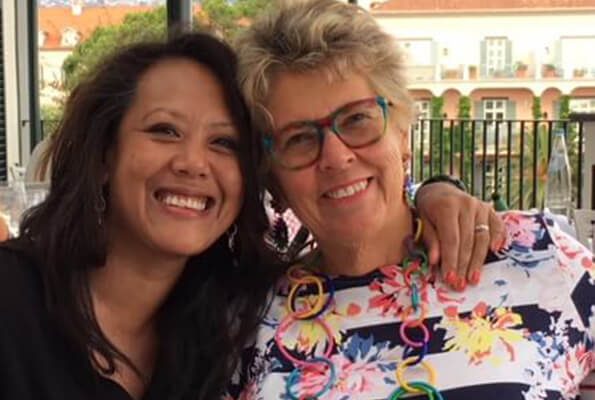 #TruePrue
#TruePrue
Adoption – a better way of doing it?
When my husband, John, was born in 1946, local doctors were the chief agents of adoption. His mother was young, single, pregnant and desperate. Her doctor had another patient, a happily married but childless woman in search of a baby. The local doctor, knowing the two women, solved both their problems by handing John to his new parents at birth.
Thirty years later I adopted my Cambodian daughter, Li-Da, with minimal fuss. We had a visit from a social worker to check us out. Within days a legal guardian was appointed, and we were allowed to foster Li-Da at once. After three months, with the occasional visit from her guardian, we adopted her.
How very different it is today. The tortuous process Li-Da, now 43, and her husband are going through in search of a child to love makes me wonder if the whole thing doesn’t need a re-think. Cameron declared he’d speed up the process with the Children’s’ Social Work Act, 2016, but many councils didn’t adopt the recommendations and his efforts have made no difference. The process still takes years.
There are seventy-three thousand “looked after” children in the UK, rising every year, and it gets increasingly difficult to place children as they get older. There are over a thousand children currently up for adoption and only six hundred and fifty couples or singles waiting to adopt at any one time. Those thousand children are the ones that social services have finally decided cannot be reunited with their birth family. 72% of adopted children are removed from their birth parents on account of abuse or neglect, yet the average age at which British-born children are adopted is three and a half years old.
At first glance the problem looks like cumbersome bureaucracy. If you want to adopt you first have to go through at least a six month (but more likely a year-long) process of form filling, interviews, inspections and a panel examination about your history, your reasons, your character, your situation, your finances, your attitudes etc, before you are cleared to apply to adopt.) And then you have to wait for the offer of a child. It takes another year to get a troubled, physically impaired or a learning disability, child, four more years for a healthy toddler and nine years to get a new-born baby.
There are reasons why there aren’t many healthy new-borns looking for a home. The stigma of single motherhood has mercifully gone, and young women now have access to abortion and the morning-after pill. But another reason is that when an unwanted baby is born, the overriding ethic of the authorities is that the child should stay with its mother, even if the mother can’t cope or doesn’t want to. Every effort is made to persuade and support the mother and help her to look after her child. Many children spend years in short stints with their natural mother, interspersed with periods in foster care — some good, some bad. Years of court hearings and this “pass the parcel” existence can, and does, damage a lot of those children. And with every year in care, the children are less and less likely to find someone to adopt them. By the time they are offered for adoption the lack of real love will have almost certainly blighted their ability to bond, to trust and to love.
And then, some councils still cling to the idea that finding parents with the same racial mix as the child is important. If you are, say, a Burmese married to a Russian, your chances of being offered a child are slight indeed. I recently heard of a Pakistani couple willing to take a child of any race. They’d jumped through all the hoops but were never offered a child. Eventually, they were advised to “Go home to Pakistan (they were both born in the UK) and find a Pakistani baby there.” They took the advice.
So, is there no way to adopt a healthy baby? If you have the money to do it, (£60K plus in fees to lawyers and intermediaries) the answer is probably a private adoption in the USA, which, though signed up to the Hague Convention, is more willing to see adoption as in ‘the best interests of the child’ if a pregnant mother doesn’t want to keep her baby. You must still jump through the full year’s hoops to be accepted as suitable by the UK authorities, and then you can hire a professional adoption lawyer in the States, who will help you to find a pregnant mother who has decided not to keep her baby. Your task will then be to convince her — not the authorities or the lawyer — that you are the best prospective parent(s). You do this by first putting together a book of photographs and information to provide information on your family, home, likes and dislikes etc. If that gets you through, you can visit, get to know both the child and mother and, with luck, take it from there.
It’s a complicated subject with no easy answers, but I cannot believe that all the checks and delays don’t do more harm than good. If any irresponsible woman can make a baby with no thought at all, and be given every assistance to keep it, I’d have thought it worth trusting a registered adoption society with using their common sense in placing children with families rather than condemning them to years being ‘looked after’ by institutions.
Adoption by Prue Leith May 2018 – The Spectator
